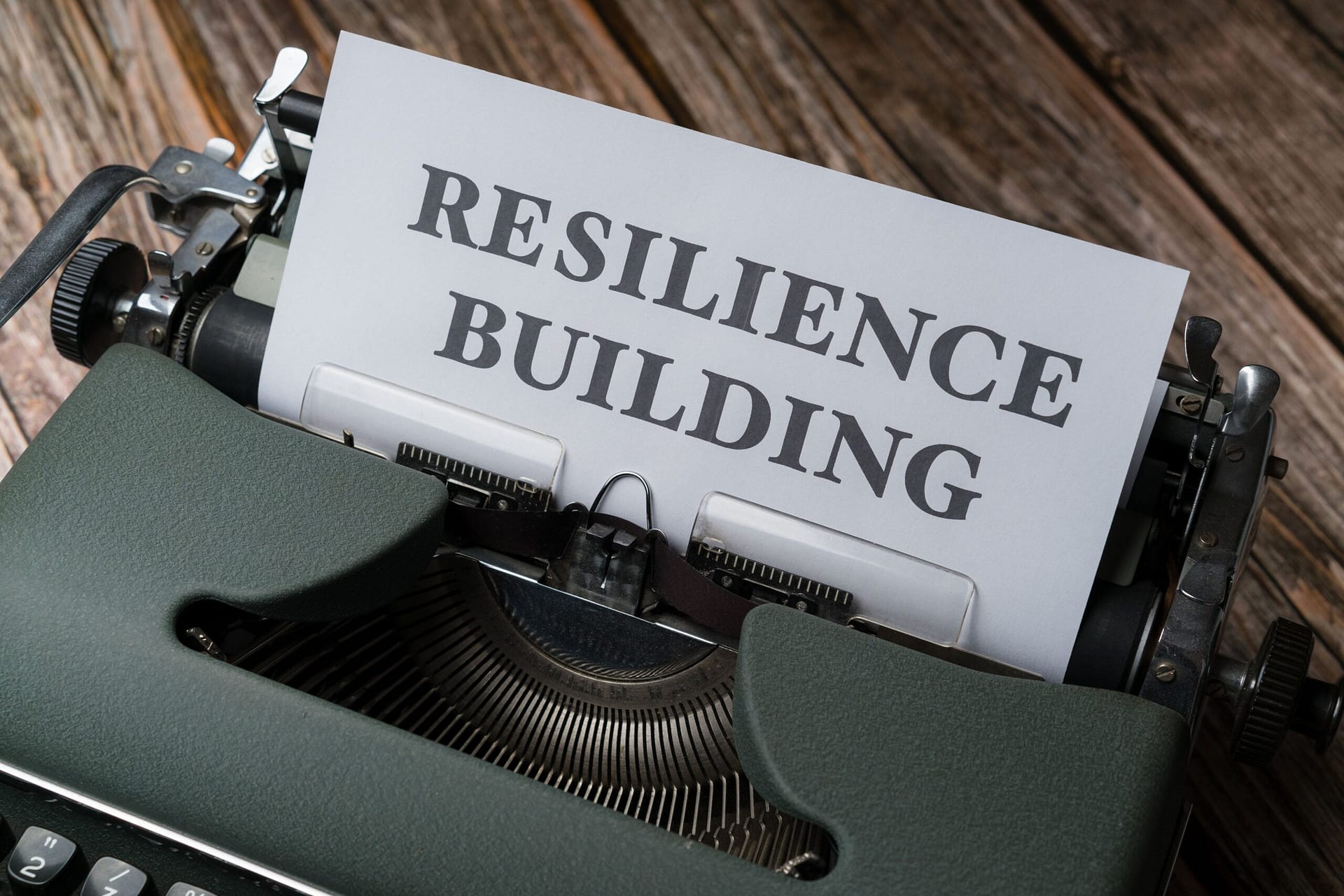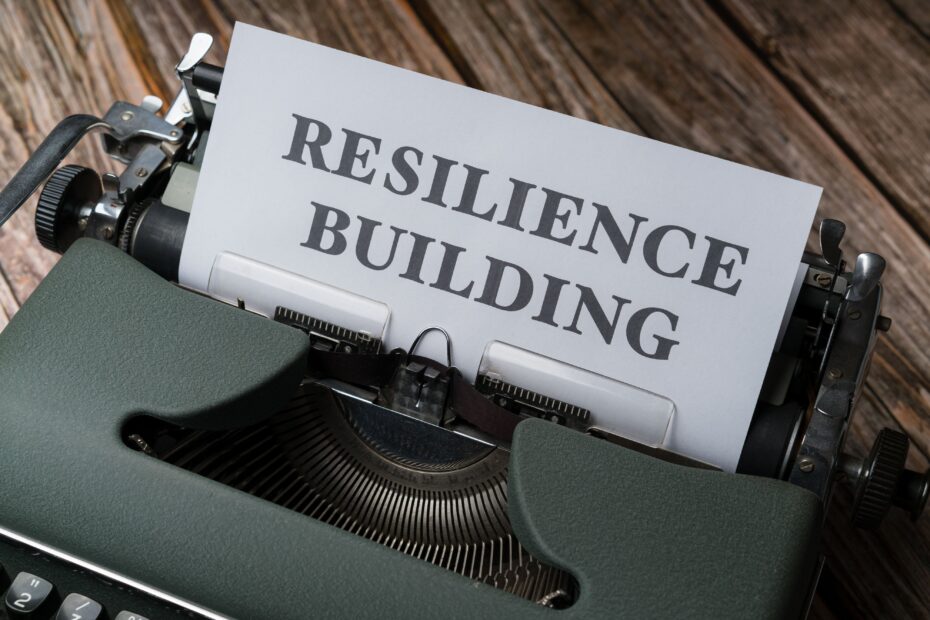When the economy takes a hit, entrepreneurs find themselves facing a daunting challenge: how to stay resilient during an economic downturn. With uncertainty lurking around every corner, it’s crucial for business owners to adapt and strategize to weather the storm. From diversifying revenue streams to cutting costs and leveraging digital platforms, there are various approaches that entrepreneurs can take to not only survive but thrive in the face of economic adversity. In this article, we’ll explore some key strategies that can help entrepreneurs navigate uncertain times and come out on top. During economic downturns, it is crucial for entrepreneurs to find ways to stay resilient and navigate through the challenging times. By implementing various strategies, entrepreneurs can not only survive but also thrive in the face of economic adversity. In this article, we will explore ten effective strategies that entrepreneurs can use to stay resilient during economic downturns.
1. Diversify Revenue Streams
Explore new markets
One effective strategy to stay resilient during an economic downturn is to explore new markets. By diversifying your customer base, you can reduce your reliance on a single market and minimize the impact of a downturn in any specific industry or region. Conduct market research to identify new opportunities, target different customer segments, and expand your reach to untapped markets.
Expand product or service offerings
Another way to diversify your revenue streams is by expanding your product or service offerings. By analyzing market trends and customer preferences, you can identify new products or services that align with your business capabilities. This diversification can help you reach new customers and generate additional sources of revenue, thereby increasing your resilience during economic downturns.
Invest in research and development
Investing in research and development (R&D) is crucial for staying ahead of the competition and adapting to changes in the market. By allocating resources to R&D efforts, you can develop innovative products or improve existing ones, which can give you a competitive advantage. This forward-thinking approach will help you stay resilient during economic downturns by keeping your business relevant and attractive to customers.
2. Minimize Expenses
Identify and eliminate unnecessary costs
During economic downturns, it is essential to review your business expenses and identify any unnecessary costs. Conduct a thorough analysis of your operational expenses, such as rent, utilities, and office supplies. Cut back on any non-essential expenditures that do not directly contribute to your core business functions. This cost-saving measure will enable you to better weather the economic storm.
Negotiate better deals with suppliers
Another strategy to minimize expenses is to negotiate better deals with your suppliers. During an economic downturn, suppliers may be more willing to negotiate prices or offer discounts to retain your business. Take advantage of this opportunity to reevaluate your supplier contracts and negotiate more favorable terms. By reducing your procurement costs, you can increase your profitability and resilience during tough times.
Implement cost-cutting measures
In addition to eliminating unnecessary costs and negotiating better deals, it is crucial to implement cost-cutting measures across your entire organization. Evaluate your business processes and identify areas where you can optimize efficiency and reduce expenses. This could involve streamlining workflows, adopting cost-saving technologies, or even downsizing if necessary. These proactive steps will help you maintain a lean operation and conserve financial resources during an economic downturn.

3. Build and Maintain Cash Reserves
Save for emergencies
Building and maintaining cash reserves is essential for maintaining financial stability during economic downturns. Ensure that your business has a surplus of cash that can be used to cover unexpected expenses or bridge gaps in revenue during lean periods. Make saving for emergencies a priority and regularly set aside a portion of your profits into a dedicated reserve fund. This financial cushion will provide peace of mind and increase your resilience during challenging times.
Secure lines of credit
In addition to building cash reserves, it is advisable to secure lines of credit with financial institutions. This can provide you with access to additional funds when needed, especially during economic downturns when cash flow may be tight. Establish relationships with banks or other lending institutions and explore options for securing credit lines that align with your business needs. Having access to credit can help you bridge temporary financial gaps and ensure smooth operations during an economic downturn.
Set up a rainy-day fund
Apart from cash reserves and credit lines, consider setting up a separate rainy-day fund specifically designated for economic downturns. This fund can act as a safety net to cover unforeseen expenses or sustain the business during prolonged periods of reduced revenue. Contribute to this fund regularly, even during prosperous times, to build a reliable buffer against future economic uncertainties.
4. Strengthen Customer Relationships
Provide exceptional customer service
During economic downturns, it becomes even more critical to focus on providing exceptional customer service. By going above and beyond to meet your customers’ needs, you can build strong relationships and foster customer loyalty. Take the time to understand your customers’ pain points and deliver personalized solutions. This level of service will differentiate your business from competitors and ensure that customers continue to choose you even during tough economic times.
Offer loyalty programs and incentives
Another effective way to strengthen customer relationships is by implementing loyalty programs and providing incentives. Reward repeat customers with discounts, exclusive offers, or loyalty points that can be redeemed for future purchases. These programs incentivize customers to continue doing business with you and increase their engagement with your brand, even when they may be more cautious with their spending during an economic downturn.
Regularly communicate with customers
Regular communication is vital for building and maintaining strong customer relationships, especially during economic downturns. Keep your customers informed about any changes, updates, or special offers through various channels such as email newsletters, social media, or personalized notifications. By staying top of mind and demonstrating your commitment to their satisfaction, you can foster loyalty and retain customers even when times are tough.

5. Adapt and Innovate
Monitor industry trends and adapt accordingly
To stay resilient during economic downturns, it is crucial to monitor industry trends and adapt your business accordingly. Stay informed about market shifts, changing consumer preferences, and emerging technologies that could disrupt your industry. Be proactive in identifying opportunities to adapt your products, services, or business models to align with these trends. By staying ahead of the curve, you can position your business for success despite the challenging economic conditions.
Embrace new technologies
Embracing new technologies is essential for remaining competitive and resilient in today’s rapidly evolving business landscape. Leverage technological advancements that can streamline your operations, improve efficiency, and enhance the customer experience. Explore tools and solutions such as automation, artificial intelligence, or customer relationship management (CRM) software to optimize your business processes and gain a strategic advantage even during economic downturns.
Find creative solutions to challenges
During economic downturns, entrepreneurs need to think outside the box and find creative solutions to challenges. Embrace a problem-solving mindset and encourage your team to brainstorm innovative ideas to overcome obstacles. This could involve exploring new distribution channels, redesigning products for affordability, or partnering with complementary businesses to create value. By being resourceful and adaptable, you can navigate through economic downturns and come out stronger on the other side.
6. Collaborate and Form Partnerships
Seek out joint ventures and collaborations
Collaborating with other businesses through joint ventures or partnerships can be mutually beneficial, especially during economic downturns. Identify synergistic businesses within your industry or related sectors and explore opportunities to work together. Pooling resources, sharing expertise, or co-developing products can lead to cost savings, expanded market reach, and increased competitiveness. By leveraging complementary strengths, you can withstand economic challenges and create new growth opportunities.
Share resources with other businesses
In addition to formal collaborations, consider sharing resources with other businesses to reduce costs and improve efficiency. This could involve sharing office space, equipment, or even employees. By pooling resources, you can minimize expenses and optimize resource allocation. Explore networking events or industry associations to identify potential resource-sharing opportunities and establish mutually beneficial partnerships.
Leverage complementary expertise
Forming partnerships with businesses that have complementary expertise can provide significant advantages during economic downturns. Identify areas where your business lacks expertise or resources and seek partners who can fill those gaps. This could involve partnering with a marketing agency to enhance your brand visibility or collaborating with a technology company to develop innovative solutions. By leveraging complementary expertise, you can enhance your competitive edge and navigate through economic uncertainties more effectively.

7. Focus on Marketing and Branding
Invest in targeted marketing campaigns
During economic downturns, it is crucial to invest in targeted marketing campaigns to maintain and attract customers. Analyze your customer demographics and preferences to create targeted messaging and choose appropriate marketing channels. This could involve online advertising, social media campaigns, or direct mail. By staying visible and communicating your value proposition effectively, you can reinforce your brand presence and generate demand even in a challenging economic environment.
Enhance brand visibility and recognition
Building a strong brand presence is vital for staying resilient during economic downturns. Focus on enhancing brand visibility and recognition by consistently delivering on your brand promise and engaging with your target audience. Develop a brand identity that resonates with your customers and differentiate yourself from competitors. Utilize branding strategies such as consistent visual elements, brand storytelling, and influencer partnerships to strengthen your brand reputation and maintain customer loyalty.
Leverage social media and online platforms
During economic downturns, social media and online platforms can serve as cost-effective and powerful tools for marketing and brand building. Establish a strong online presence by leveraging social media platforms that are popular among your target audience. Consistently publish relevant and engaging content, participate in conversations, and respond to customer inquiries. Explore opportunities for partnerships or sponsored content to expand your reach and increase brand awareness. By utilizing social media and online platforms effectively, you can maintain a strong connection with your customers and adapt to changing marketing trends.
8. Retain and Develop Talent
Offer competitive salaries and benefits
During economic downturns, it becomes even more crucial to attract and retain top talent. Offer competitive salaries and benefits packages to ensure that your employees feel valued and motivated to stay with your company. Conduct market research to benchmark your remuneration packages against industry standards and adjust them if necessary. By investing in your employees’ well-being, you can build a loyal and highly productive workforce that will contribute to your resilience during challenging economic times.
Provide training and development opportunities
Investing in the training and development of your employees is essential for their growth and for the overall success of your business. Offer opportunities for skill-building, professional development, and cross-training. This not only enhances employee satisfaction but also ensures that your workforce remains adaptable and capable of meeting changing business needs. By nurturing your employees’ skills and capabilities, you can build a resilient team that can navigate through economic downturns with agility.
Promote a positive work culture
A positive work culture can significantly contribute to the resilience and success of your business during economic downturns. Foster a supportive and collaborative environment where employees feel valued, empowered, and motivated. Encourage open communication, recognize and reward achievements, and promote work-life balance. A positive work culture improves employee engagement, reduces turnover rates, and attracts talented individuals who are dedicated to the long-term success of your business.

9. Stay Informed and Seek Expert Advice
Keep up with industry news and trends
Staying informed about industry news and trends is crucial for staying resilient during economic downturns. Regularly read industry publications, attend conferences or webinars, and participate in industry-specific forums or networks. By keeping track of market developments, you can anticipate potential challenges, identify emerging opportunities, and make informed decisions that will strengthen your business during economic uncertainties.
Consult with mentors and advisors
Seeking advice and guidance from mentors and advisors is invaluable during economic downturns. Connect with experienced entrepreneurs or industry experts who can provide insights, share their experiences, and offer valuable advice. These mentors can help you navigate through challenges, identify blind spots, and provide the guidance necessary to stay resilient. Consider joining business associations or networking groups where you can connect with mentors and advisors who can contribute to your growth and resilience.
Join industry associations and networks
Participating in industry associations and networks can provide numerous benefits when facing economic downturns. Networking with fellow entrepreneurs allows you to exchange ideas, share best practices, and learn from each other’s experiences. These connections can lead to valuable partnerships, collaborations, or even potential investors. Actively engage in industry events, conferences, and networking opportunities to expand your network and gain access to a supportive community during challenging economic times.
10. Maintain a Positive Mindset
Stay optimistic and resilient
Maintaining a positive mindset is crucial for entrepreneurs during economic downturns. While it is natural to feel discouraged during challenging times, staying optimistic can help you overcome obstacles and maintain focus on your long-term goals. Surround yourself with positivity, practice gratitude, and remind yourself of previous successes and your ability to adapt. By embracing a positive mindset, you can inspire your team, attract opportunities, and navigate through economic downturns with resilience.
Embrace failures as learning opportunities
During economic downturns, failures may occur despite your best efforts. Instead of dwelling on these setbacks, embrace them as valuable learning opportunities. Analyze what went wrong, identify areas for improvement, and make the necessary adjustments to your business strategies. By adopting a growth mindset and learning from failures, you can transform setbacks into stepping stones towards future success.
Focus on long-term goals
Finally, it is essential to stay focused on your long-term goals during economic downturns. While short-term challenges may require adjusting strategies or reinventing your business, maintaining a clear vision of where you want to be in the long run will keep you motivated and resilient. Revisit your business plan, redefine your goals if necessary, and consistently take steps towards achieving them. By staying committed to your long-term vision, you can weather economic downturns with confidence and come out stronger on the other side.
In conclusion, economic downturns pose significant challenges for entrepreneurs, but by implementing these ten strategies, you can enhance your resilience and position your business for success. Diversifying revenue streams, minimizing expenses, building cash reserves, and strengthening customer relationships are foundational strategies that provide a solid foundation during tough times. Adapting, innovating, collaborating, and focusing on marketing and branding tactics will help you stay competitive and relevant. Retaining and developing talent, staying informed, and maintaining a positive mindset bring the necessary people-centric and future-oriented aspects to thrive during economic downturns. By combining these strategies and adapting them to your specific business context, you can navigate economic uncertainties and emerge stronger, even in the face of adversity.
